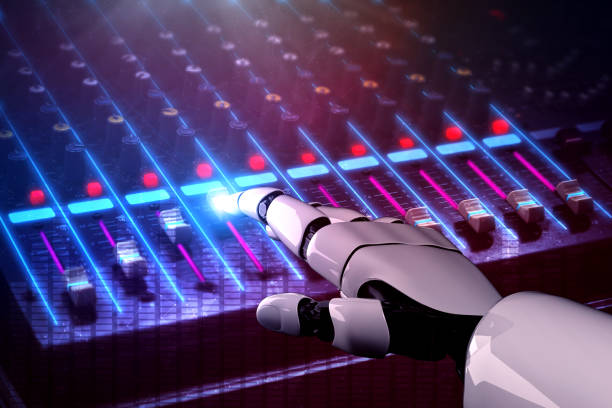Virtual actors, powered by AI, are transforming how films and TV shows are produced. These digital personas can be generated entirely through CGI, with their movements, expressions, and voices controlled by sophisticated AI algorithms. The rise of virtual actors, such as the highly realistic CGI character in “The Mandalorian,” signals a new era in filmmaking. These AI-driven characters can be seamlessly integrated into any production, creating cost-effective solutions and allowing filmmakers to explore previously impossible creative concepts. By eliminating the need for human actors in some roles, virtual actors open up new possibilities for storytelling.
Dynamic Storytelling with AI
AI is making waves in the world of storytelling by enabling dynamic, real-time narratives. In traditional films or TV shows, the story is predetermined, but with AI, the storyline can change based on the viewer’s preferences, actions, or interactions. This concept is already being tested in video games where the plot adapts to the player’s decisions. AI allows creators to design stories that evolve with the audience, making the entertainment experience more personal and immersive. Imagine a movie where the plot changes every time you watch it, influenced by the decisions you make as the viewer. This level of customization has the potential to transform the entertainment landscape entirely.
Enhancing Visual Effects with AI
AI is also revolutionizing visual effects (VFX) by automating tasks that once required extensive manual labor. From enhancing CGI to creating complex animations, AI tools streamline the VFX process, making it faster and more cost-effective. AI-driven software can predict and create realistic textures, lighting effects, and motion capture data, reducing the need for time-consuming manual adjustments. This not only helps in improving the quality of special effects but also speeds up the production process, allowing for more innovative designs and greater creative flexibility.
AI in Music and Sound Design
AI isn’t just shaping visual aspects of entertainment but also the auditory side. In music, AI algorithms are being used to create new compositions, produce sound effects, and even mix tracks. These systems analyze patterns from existing songs and generate unique melodies or background scores, giving musicians new tools to enhance their work. In film and gaming, AI can generate soundscapes that change dynamically in response to the plot or user interaction, further immersing audiences in the experience.
Ethical Considerations of AI in Entertainment
As AI continues to evolve in entertainment, ethical concerns are being raised. Issues related to copyright, actor compensation, and the potential for AI to replace human jobs are becoming increasingly relevant. The idea of virtual actors taking over roles traditionally held by humans has sparked debates about the rights and responsibilities of content creators and performers. Similarly, AI’s ability to create personalized content raises questions about privacy and data usage. It’s important for industry stakeholders to address these concerns to ensure the responsible use of AI technology.
Frequently Asked Questions
1. Will AI replace human actors in movies and TV shows?
While AI is becoming more advanced and capable of playing roles in entertainment, it is unlikely to fully replace human actors. Virtual actors may be used in specific situations, but human performers will still be essential for many roles that require emotional depth and complexity.
2. How does AI create dynamic storytelling in movies and games?
AI creates dynamic storytelling by analyzing the actions and choices of the viewer or player. Based on this data, the AI adjusts the narrative to create a personalized experience, offering unique outcomes and story developments every time the content is consumed.
3. Can AI improve the visual effects in movies?
Yes, AI can enhance visual effects by automating many tasks involved in CGI creation, such as generating realistic textures, lighting, and motion capture data. This speeds up the production process and allows for more creative freedom in visual storytelling.
4. What ethical concerns are there with AI in entertainment?
Ethical concerns related to AI in entertainment include the potential for job displacement, copyright issues, and privacy concerns with personalized content. It’s crucial for the entertainment industry to address these issues to ensure AI is used responsibly.
5. How is AI changing the music industry?
AI is changing the music industry by enabling the creation of new compositions, sound effects, and mixes. AI tools help musicians develop unique tracks, offering fresh possibilities for music production and sound design.


